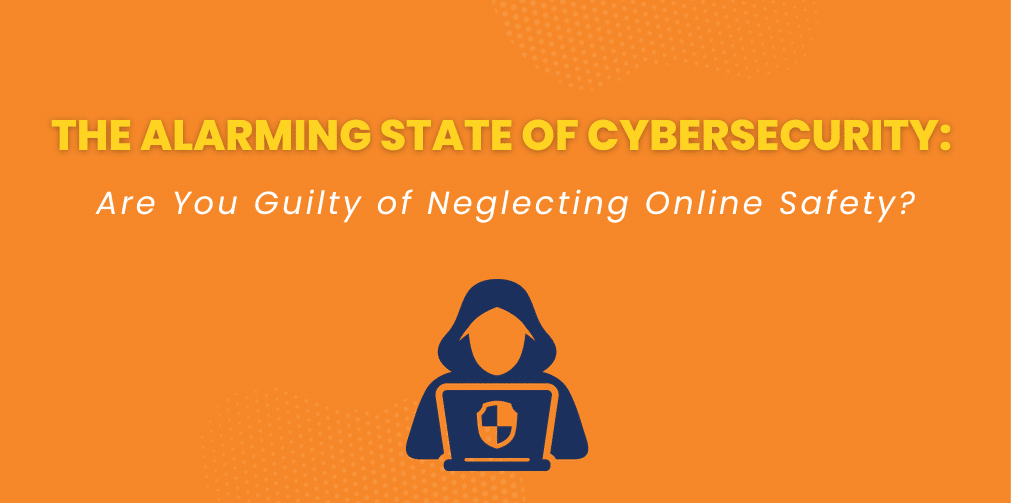
In a recent study conducted by cybersecurity experts at Malwarebytes, a grim reality about the state of cybersecurity practices in the United States and Canada has come to light. Internet users across these regions are failing to adopt even the most basic security measures to protect themselves online. But before we point fingers solely at the public, it’s crucial to recognize that the cybersecurity industry is also part of the problem. According to this research, there’s a significant lack of understanding, trust, and usage of cybersecurity products among consumers.
In this blog post, we’ll delve into the findings of the study titled “Everyone’s afraid of the internet and no one’s sure what to do about it” and highlight the alarming statistics that reveal how poorly people are safeguarding their digital lives. We’ll also discuss the consequences of these practices and the importance of a collective effort to bolster online security.
The State of Cybersecurity: A Wake-Up Call
Malwarebytes conducted an extensive survey involving 1,000 participants ranging from ages 13 to 77, aiming to gain insights into their cybersecurity beliefs and behaviors. The results were disheartening, revealing that a significant portion of the population remains dangerously vulnerable to online threats.
Neglected Cybersecurity Practices
Here are some of the most concerning findings from the study:
1. Minimal Use of Antivirus Software (Study found only 35% use) One of the fundamental cybersecurity tools available to internet users is antivirus software. Its primary role is to detect and remove malicious software from your devices. Astonishingly, only 35 percent of respondents reported using antivirus software. This means that a large percentage of individuals are leaving their devices exposed to a myriad of potential threats, including viruses, malware, and ransomware.
2. Low Adoption of Multi-Factor Authentication (Study found only 24% adopt) Multi-factor authentication (MFA) is a powerful defense mechanism that adds an extra layer of security by requiring users to provide two or more forms of verification before granting access to an account. Despite its effectiveness, only 24 percent of those surveyed use MFA. This neglect leaves many accounts susceptible to unauthorized access and compromise.
3. Limited Use of Password Managers (Study found only 15%) Password managers are invaluable tools for generating and securely storing complex passwords for various online accounts. Shockingly, only 15 percent of respondents use a password manager. The vast majority of individuals are still relying on weak and easily guessable passwords, putting their accounts at risk of being hacked.
4. Lack of Unique Passwords (Study found only 35% use unique accounts) Using the same password across multiple accounts is a common and dangerous practice. It’s like using one key to unlock multiple doors; if the key falls into the wrong hands, all your accounts are at risk. Sadly, just 35 percent of those surveyed reported having unique passwords for most or all of their accounts, leaving the rest vulnerable to potential breaches.
The Consequences of Neglecting Cybersecurity
The consequences of these lax cybersecurity practices are far-reaching and can have a devastating impact on both individuals and society as a whole. Here are some potential repercussions:
- Identity Theft: Weak passwords and a lack of MFA make it easier for cybercriminals to steal personal information and commit identity theft.
- Financial Loss: Falling victim to online scams and fraud can result in significant financial losses for individuals.
- Data Breaches: Neglected security practices can lead to data breaches, exposing sensitive information such as credit card details and personal records.
- Cyberattacks on Businesses: Individuals who neglect cybersecurity at home can inadvertently become vectors for cyberattacks against their workplaces.
Take Action Now
The findings from Malwarebytes’ study emphasize the urgent need for a collective effort to enhance online security. This responsibility falls on both individuals and the cybersecurity industry. Here’s what you can do:
- Educate Yourself: Take the time to learn about cybersecurity best practices and the tools available to protect yourself online.
- Use Antivirus Software: Install reputable antivirus software to safeguard your devices from malware and viruses.
- Embrace Multi-Factor Authentication: Enable MFA wherever possible to add an extra layer of security to your online accounts.
- Implement a Password Manager: Start using a password manager to generate and store strong, unique passwords for each of your accounts. Webmaster For Hire strongly recommends RoboForm Premium or Business: visit here to learn more about this program.
- Advocate for User-Friendly Products: The cybersecurity industry must strive to develop products that are easy to understand, trust, and use. User-friendly interfaces and clear documentation can make a significant difference.
The state of cybersecurity revealed by Malwarebytes’ research is a stark reminder that there is much work to be done in protecting ourselves and our digital lives. Neglecting basic security practices is no longer an option in today’s increasingly interconnected world. It’s time to take responsibility, educate ourselves, and demand better cybersecurity solutions from the industry.
For more details on this eye-opening study, we encourage you to read the full article on Malwarebytes’ website here. Your online safety is in your hands, so let’s make the necessary changes to ensure a safer digital future for all.